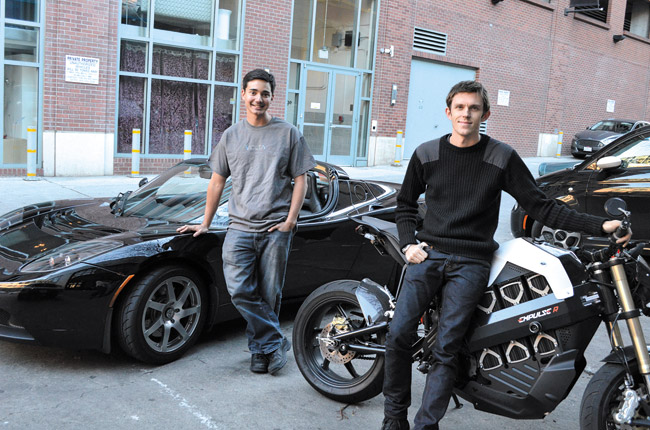Local Company Expands Nationwide
When Michael Menendez flew into L.A. from Honolulu earlier this month, he kept moving – driving from there to San Diego, then to Phoenix, then Tucson. The grueling road trip – done in just three days, including stints of driving nine hours straight – was all for Volta Industries LLC, which provides free-to-use electric vehicle charging stations. The company recently began the first phases of an aggressive national expansion, and Menendez, Volta co-founder and chief technology officer, was updating its newer Mainland stations.
What is now becoming a widespread endeavor all began in the Islands. Launched in 2010, Volta has about 20 stations on Oahu, and more recently has installed a couple on Maui and 35 in California and Arizona.
“We’re nothing if not a bit ambitious,” Volta co-founder and CEO Scott Mercer says, laughing.
Prior to launching Volta, Menendez and Mercer both were operating their own businesses – Menendez (who discovered his passion for EVs while on the Electron Marathon team at Mid-Pacific Institute) ran an EV conversion venture, while Mercer owned a car-restoration shop that specialized in vintage sports cars. Both had toyed with the idea of launching charging stations, but agreed that while EVs are the better choice for the environment, the market wasn’t there yet.
By providing the service for free – it’s supported by sponsors that place advertisements on the stations – Volta could build up the infrastructure for the kind of EV-saturated future it envisioned. Not only would these charging stations serve current EV owners, but they also would be an inspirational tool for all drivers to consider an EV.
“The whole business is somewhat based on impatience. I see electric cars as the future of the automotive industry,” Mercer says. “It is a technological step forward that needs to be made faster.”
Placed in high-traffic areas like Ala Moana Center and Pearlridge Center, the stations also provide high visibility for sponsors. Most properties have a two- to three-hour time limit – but Menendez says that’s enough to get you about 25 miles of range. And unlike other cars, 25 miles is 25 miles in an EV, even if you’re trapped in traffic on H1 for two hours.
“The power generation is many times more efficient than your car,” Menendez explains, adding that all Volta stations use a universal plug. “And it’s free to charge, so it’s like getting free gas.”
Volta’s recent expansion is just the beginning. By the end of the year, it hopes to have up to 500 stations – and thousands throughout major cities in the country by 2017.
“I still have this view of technology that it should be a conduit through which we can solve problems,” Mercer says. “And the electric car is a better form of transportation – it’s cleaner, it’s more environmentally friendly. It just makes sense.”
coconnor@midweek.com






